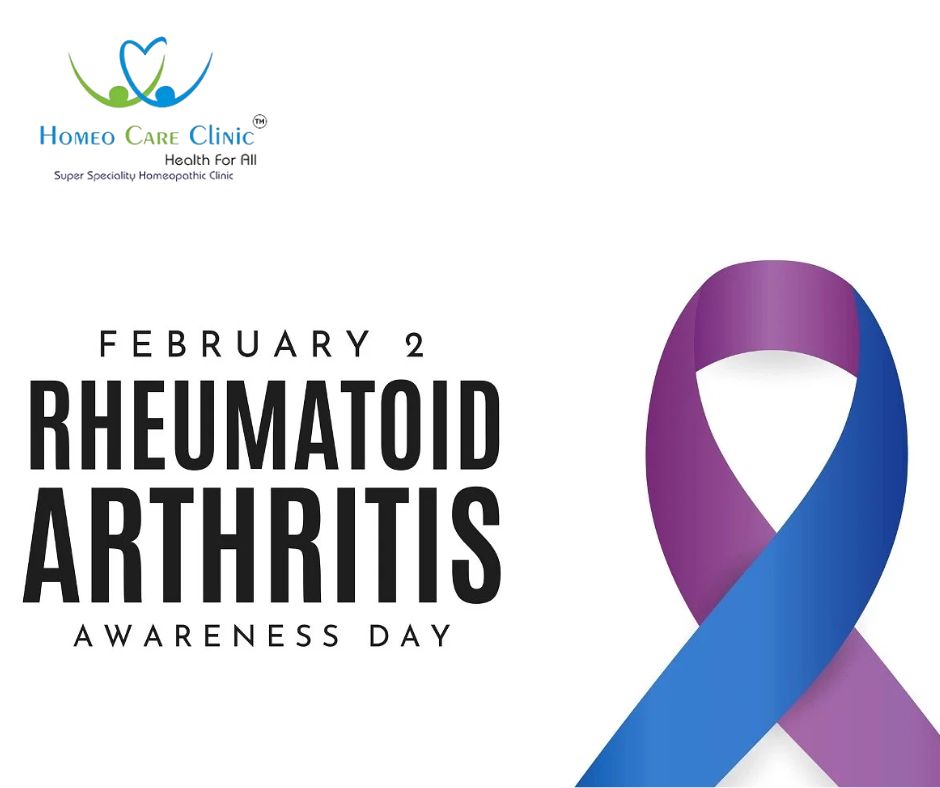INTRODUCTION:
Rheumatoid Awareness Day is celebrated on 2 February and is dedicated to raising awareness about rheumatoid arthritis (RA), an autoimmune disorder that primarily affects the joints. The day aims to educate the public about the causes, signs, and symptoms of RA, as well as promote understanding and support for individuals living with this condition.
DEFINITION:
Rheumatoid arthritis (RA) is a chronic autoimmune disorder characterized by inflammation of the synovium, the lining of the membranes that surround the joints. In RA, the immune system mistakenly attacks the synovium, leading to joint inflammation, pain, stiffness, and, if left untreated, potential joint damage and deformities. Unlike osteoarthritis, which results from wear and tear on the joints, rheumatoid arthritis affects multiple joints symmetrically and can also have systemic effects on organs and tissues throughout the body.
CAUSES:
Rheumatoid arthritis is caused by the immune system mistakenly attacking the synovium, the lining of the membranes that surround the joints. This leads to inflammation, joint damage, and pain. The exact cause of this autoimmune response is not fully understood, but it is believed to involve a combination of genetic and environmental factors.
SIGNS AND SYMPTOMS:
Joint Pain and Stiffness: Persistent pain and stiffness, especially in the morning or after periods of inactivity, are common symptoms. Joints on both sides of the body are often affected.
Swelling and Warmth: Inflamed joints may appear swollen, feel warm to the touch, and exhibit redness.
Fatigue: RA can cause general fatigue and a feeling of being unwell, impacting daily activities.
Morning Rigidity: Many individuals with RA experience prolonged morning stiffness, making it challenging to initiate movement.
Joint Deformities: Over time, joint damage may lead to deformities, affecting the appearance and function of the affected joints.
Systemic Effects: RA can also affect organs and systems beyond the joints, leading to complications such as cardiovascular issues, lung problems, and eye inflammation.
Rheumatoid Awareness Day serves as an opportunity to emphasize the importance of early diagnosis and intervention, as timely treatment can help manage symptoms, prevent joint damage, and improve the overall quality of life for those with RA. Increased awareness also fosters a supportive community for individuals dealing with this chronic condition.
HOMEOPATHIC APPROACH IN RHEUMATOID ARTHRITIS:
Homeopathy is a holistic approach that believes in treating individuals based on their unique symptoms and overall well-being. In the context of rheumatoid arthritis, a homeopathic practitioner might consider various factors, such as physical symptoms, mental and emotional states, and lifestyle. Majorly, it considers the emotional and cerebral aspects of the person. It not only works on diseased conditions but aims to cure the case as a whole.
HOMOEOPATHIC MEDICINES FOR RHEUMATOID ARTHRITIS:
Homeopathic remedies for rheumatoid arthritis are chosen based on individualized symptoms and characteristics. Here are five homeopathic indications and corresponding remedies often considered for rheumatoid arthritis:
Rhus tox (Rhus toxicodendron):
Stiffness in joints, particularly when beginning to move, improves with continued motion. Pain may be relieved by warmth and worsened by rest. Restlessness and a desire for constant change of position are common.
Bryonia (Bryonia alba):
Intense pain aggravated by movement. Joints are hot, swollen, and red. The person prefers to remain still and immobile to alleviate discomfort. Symptoms are typically worse with warmth.
Apis (Apis mellifica):
Joints are swollen, shiny, and edematous. There is a burning or stinging sensation. Symptoms worsen with heat and improve with cold applications. The person may experience relief from cool compresses.
Calcarea carbonica (Calcium carbonate):
This remedy is considered when joints are swollen and painful, especially in cold, damp weather. Individuals needing Calcarea carbonica may experience a sense of heaviness in the joints and may be prone to weight gain.
Colchicum (Colchicum autumnale):
It is suitable for cases with severe pain and swelling in joints, often worsened by the slightest touch. There may be a sensation of heat in the affected areas. Symptoms tend to be worse in the evening and at night.
CONCLUSION:
It’s important to reiterate that homeopathic remedies should be specified by a good homeopath after a thorough evaluation of the existent’s symptoms, medical history, and overall health. Dr. Vaseem Choudhary’s “ Homoeo Care Clinic” is known for furnishing treatment for rheumatoid arthritis through a holistic approach.






